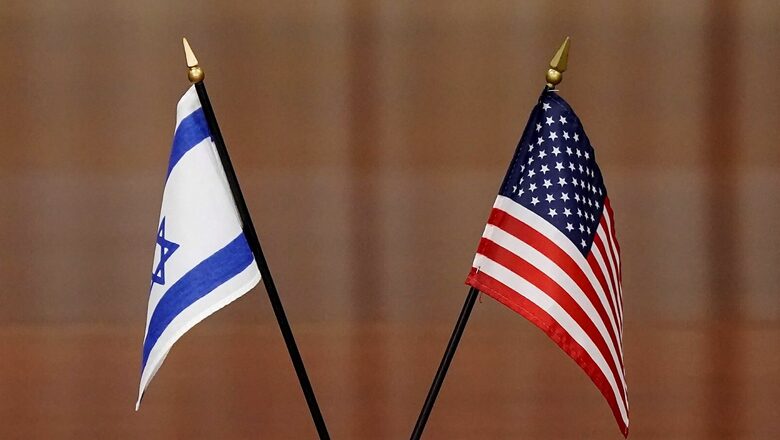
views
A group of Israeli and Chinese companies has filed a lawsuit in Tel Aviv District Court accusing the government of Israel of blocking their offer for a light rail project due to alleged “illegal” pressure from the United States.
The Israeli government revealed in January this year that the French firm Alstom had won the tender, and that Israeli companies Dan and Electra had won the Green Line tender, with Israeli firm Shafir and Spanish firm CAF scheduled to build the Purple Line.
The announcement by NTA Metropolitan Mass Transit System Ltd, the government-funded firm in charge of the Tel Aviv light rail’s planning and construction, was considered a huge victory for the US against China in a multi-year war over Israeli infrastructure power.
The current and previous administrations, under Joe Biden and Donald Trump, respectively, have pressed Jerusalem to reject Chinese bids for crucial infrastructure projects, particularly in the fields of communications and technology. For example, the Trump administration threatened to stop the US Navy from using it, due to China’s role in the port’s building and operation.
Such trade and technology conflict between the US and China has heightened Washington’s fears that Beijing could use infrastructure investments in Israel as a backdoor to spy on US interests.
However, Israel was concerned about alienating Beijing, and the January decision marked the first time it followed the new US position and risked such a significant breach with China after more than a decade of Chinese corporations investing more and more in Israeli infrastructure and ports projects.
The plaintiffs include the China Railway Construction Company, which the Biden administration barred from receiving any US investment owing to suspicions of ties to China’s defence industry, the Israeli company Urbanics, and other Israeli and Chinese companies. Following suspicions of fraud, the World Bank sanctioned the CRCC in 2019.
The plaintiffs in the lawsuit demanded that Israel approve their bids since they were the cheapest.
The China Civil Engineering Construction Corp, one of its subsidiaries, dug the Gilon Tunnel in the north for about $200 million in 2014, worked as a subcontractor on the Carmel Tunnel project for about $150 million in 2010, and has been working on the Tel Aviv Light Rail’s Red Line for $500 million in recent years.
The 39-km, 63-station Green Line is planned to travel from Rishon Lezion to western Herzliya, passing through Holon, central Tel Aviv, and Tel Aviv University. It will include four subterranean stations, with an expected start date of 2026.
The Purple Line will extend eastward from Tel Aviv’s Carmel Market, with one route connecting Kiryat Ono and Bar-Ilan University and the other connecting Yehud. It is scheduled to open in 2026 and will be 27km long with 45 stations.
The CRCC has a history of “dumping”, a frequent practice among companies participating in China’s aim to extend its infrastructure building globally, in which they compete for a tender at a loss in order to win.
Their offer for the Tel Aviv Green and Purple Lines was much lower than the others, and NTA began looking into how it might supply the necessary services for such a low price in August 2021. The NTA is familiar with this tactic, as the Chinese company CRGT overspent on the Red Line of the Tel Aviv Light Rail.
However, officially, NTA stated that it rejected CCRC’s bid because it was “misleadingly low”.
The plaintiffs cited statements from the former director of Shin Bet — which is the Israel Security Agency — Nadav Argaman, Israeli government authorities, and US officials, indicating that Jerusalem would reject CCRC’s proposal based on America’s request in the complaint.
If the Biden administration frames the matter in terms of preventing China from spying on both Israel and the United States, the plaintiffs claim that this is a ruse by Washington to achieve an unfair economic advantage over Beijing.
The plaintiffs also reportedly claimed that conventional contract law prohibits the government from discriminating against Chinese enterprises just because the US asks it. They further said that claims by Argaman and others that Chinese corporations could be hazardous to Israel if permitted to continue building its infrastructure are based on a subjective desire to impress the US, disregarding of contract law and fairness concerns.
Read all the Latest Business News and Breaking News here




















Comments
0 comment